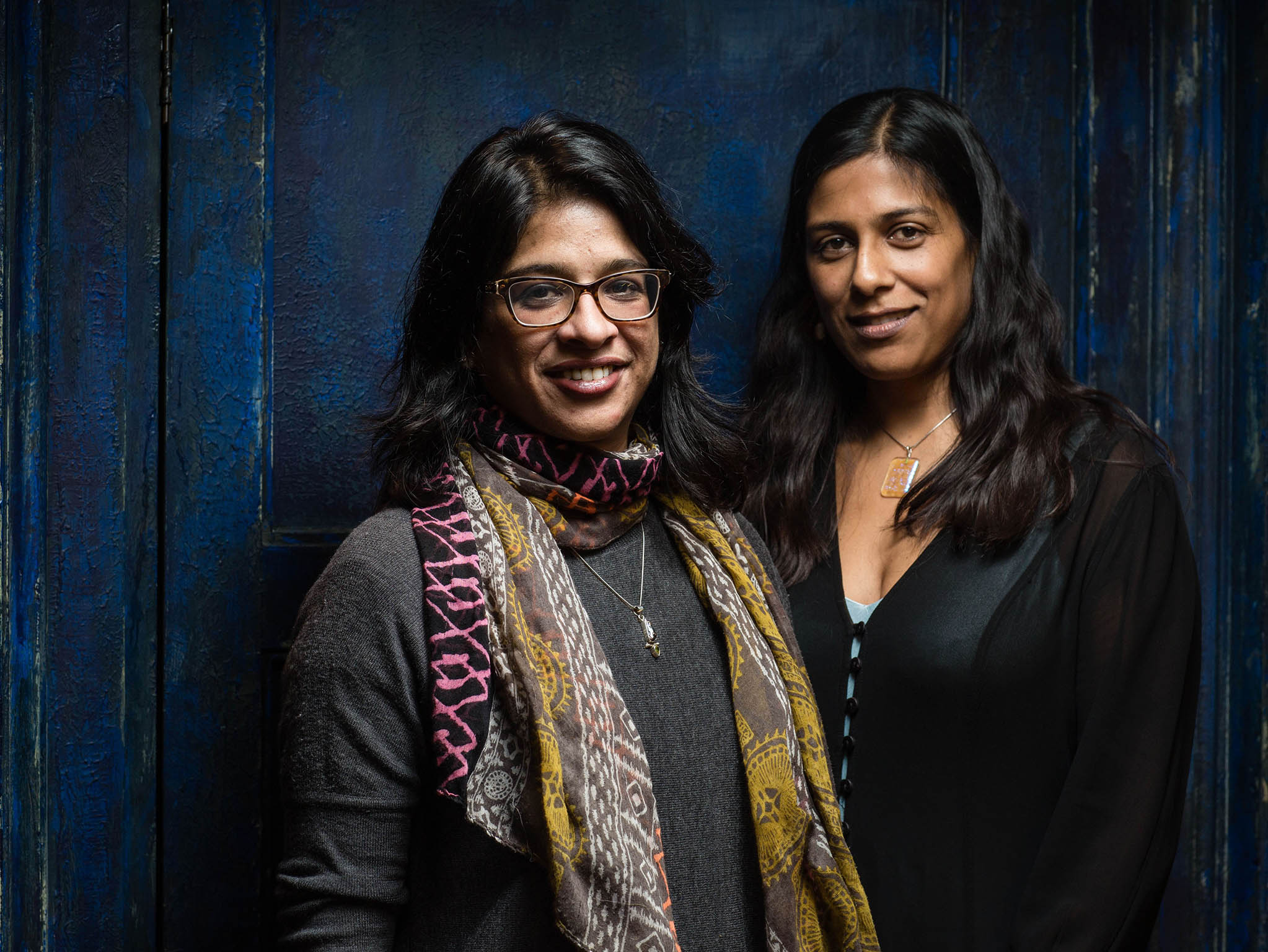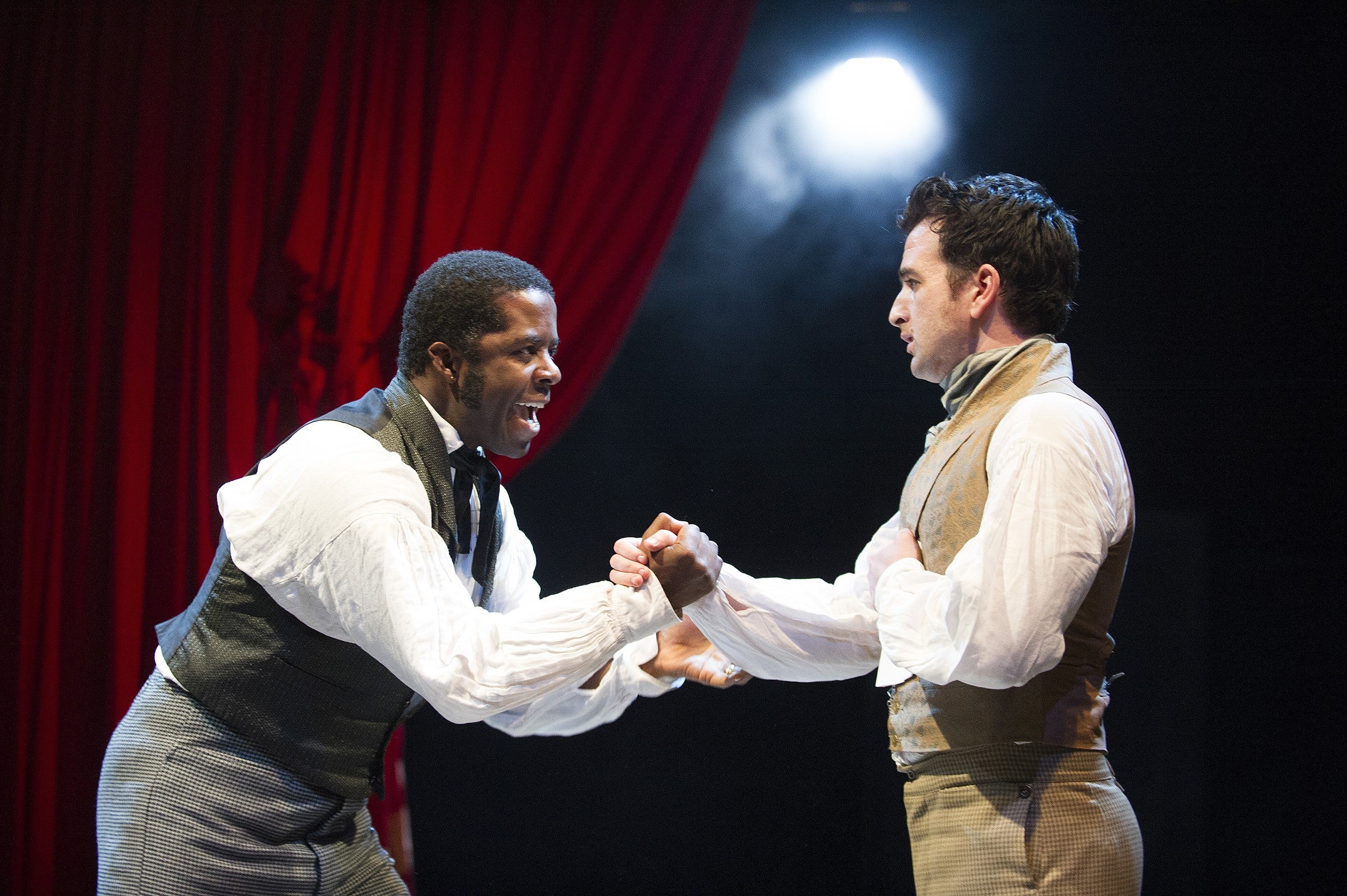How Lolita Chakrabarti and Indhu Rubasingham's enduring friendship drove hit play Red Velvet to Broadway and the West End
'It’s not about race, it’s about being an outsider and I think almost everybody feels like an outside'

Your support helps us to tell the story
From reproductive rights to climate change to Big Tech, The Independent is on the ground when the story is developing. Whether it's investigating the financials of Elon Musk's pro-Trump PAC or producing our latest documentary, 'The A Word', which shines a light on the American women fighting for reproductive rights, we know how important it is to parse out the facts from the messaging.
At such a critical moment in US history, we need reporters on the ground. Your donation allows us to keep sending journalists to speak to both sides of the story.
The Independent is trusted by Americans across the entire political spectrum. And unlike many other quality news outlets, we choose not to lock Americans out of our reporting and analysis with paywalls. We believe quality journalism should be available to everyone, paid for by those who can afford it.
Your support makes all the difference.The story of how Red Velvet – Lolita Chakrabarti’s award-winning play about how the pioneering black Shakespearean actor Ira Aldridge came to wow Victorian London – eventually made it on to the stage is worthy of being turned into a play itself.
Red Velvet tells of how the African-American Aldridge challenged 19th-century society, and has been a snowballing critical and commercial success since it premiered at the Tricycle Theatre in 2012. It won Most Promising Playwright for Chakrabarti at the Evening Standard Theatre Awards as well as awards for Chakrabarti and star Adrian Lester at the Critics Circle Awards.
Red Velvet returned for another Tricycle run in 2014 before transferring to Broadway – and now, finally, it is to make its West End debut. I go to meet Chakrabarti and director Indhu Rubasingham just before it opens as part of Kenneth Branagh’s seasons of plays at London’s Garrick Theatre.
The backstory to Red Velvet is one of years of rejection. What kept the project driving forward was the friendship between Chakrabarti, who is married to Hustle actor Lester, and Rubasingham. They explain as we talk during a break from rehearsals.
They met at a workshop at the National Theatre in 1999 and “became friends immediately”, says Rubasingham. “I think there is the thing of having similar passions and world views ... to meet someone of a similar background was rare then … our parents were immigrants, our fathers were doctors of a similar age, we had similar backgrounds in schooling so it was like ‘My God, it’s like meeting a kindred spirit’.”
Soon after, Chakrabarti, also an actress known for small-screen roles in The Casual Vacancy and ITV’s current Beowulf adaptation, told Rubasingham that she had started writing and was working on a screenplay about Aldridge. Rubasingham, a former drama student, was “really shocked’ that she had never heard of Aldridge.

She told Chakrabarti to write it as a play, adding “it will get on quicker”. Chakrabarti laughs: “It was seven years before we got it on as a play so she lied!”
They would meet up with Lester between freelance jobs to discuss each new draft (there were about 30). “It was only the friendship that allowed us to keep going. It wasn’t a commission and there were times when I would be girding my loins because she would be like ‘I’ve finished’ and I’d be like ‘she hasn’t’ and having to tell her,” says Rubasingham.
After the three of them took it to theatres with no success, Chakrabarti says the “crux point” came in 2011 when a final rejection convinced her to “put it away”.
Then Rubasingham was offered the job as artistic director of the Tricycle Theatre in Kilburn, north London. She had made Red Velvet a big part of her interview feeling she should “stand or fall [on] what I’ve believed in and pushed”. She says former National Theatre head Nicholas Hytner had advised her “make sure you programme what you really believe in, what you are passionate about, you don’t want to second guess what the audience might want”.
The persistence of the collaborators paid off and Chakrabarti says she was “gobsmacked” by the reaction. “We were all a bit blindsided,” she admits. “At that first preview all three of us were ‘in for a penny in for a pound’ but it just went like fire.” Rubasingham adds that she was “really scared” after someone in the industry told her “I don’t know why you’ve programmed this, it’s been rejected by so many places”.
She adds: “I remember feeling sick and thinking what if everyone else is right and I am wrong?”
But Rubasingham says it’s important to put rejection into context. “It’s just par for the course in our industry ... there’s just so much material vying for exposure ... that’s why it is really important to have diversity of leadership whether it is in terms of class, race or gender, so you have different tastes. It is all about taste and there have been plays I’ve rejected that have done well elsewhere.”
I ask why Red Velvet is such a hit with audiences. Chakrabarti says: “Although the obvious place to go is race because it is [about] a black actor, it’s not about race, it’s about being an outsider and I think almost everybody feels like an outsider. I think it is about aspiring to do well and to tell a story and I think it creates discussion.”
Two years ago, Chakrabarti wrote in The Independent to say that she was “falling out of love with the theatre” because of “the entitlement and exclusivity of it”. Does she still feel this way? “Things have changed in the past few years,” pointing in particular to a trio of female artistic directors who have flourished at major institutions: Rubasingham at the Tricycle, Vicky Featherstone at the Royal Court and Josie Rourke at the Donmar. “I used to think it was a gentleman’s club ... every single building was run by a man, but that has shifted ... there has been a shift of leadership so diversity has come in.”
Rubasingham’s worries about access have less do with the industry itself than changes in the education system – notably rising university tuition fees which she says are shutting the door to a career in theatre for people from a variety of backgrounds.
“I do worry about how [fees] are going to be preventative for different voices coming through,” she says. “If I’d had to pay for my drama degree I don’t think my parents would have let me do it. If we were coming through now would Adrian, Lolita and I be in the industry? The odds are very much against.”
Returning to Aldridge, a figure who certainly battled the odds, they are all thrilled that Red Velvet has ensured he now has his rightful place in history. “I know that Red Velvet is being studied at universities in Britain, and at Rada and in America. There is this huge resonance and you would never link that back to the Tricycle. The Tricycle Theatre and what you [Rubasingham] have done has made a huge contribution to our national identity,” she adds.
The pair are now collaborating on a new play. This time the theme is “the chaos of motherhood, so it is totally different,” says Chakrabarti.
But will we ever see the story of how the play of Red Velvet came about? “Yes, but I’m not going to be the one to write it!” laughs Chakrabarti.
Buy tickets for Red Velvet with Independent Tickets
‘Red Velvet’, Garrick Theatre, from Sat to 27 Feb
Join our commenting forum
Join thought-provoking conversations, follow other Independent readers and see their replies
Comments